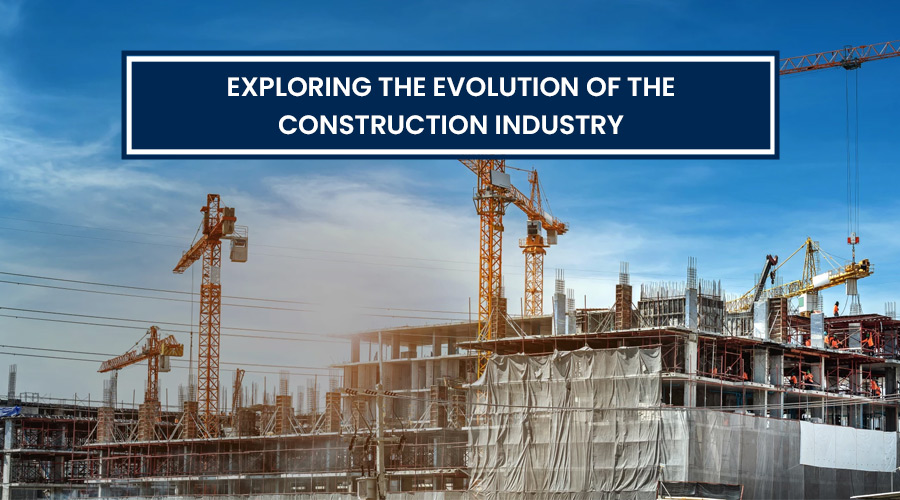Introduction
The construction industry, one of the oldest and most fundamental sectors of our economy, is undergoing a profound transformation. With advancements in technology, evolving societal needs, and a growing emphasis on sustainability, the future of the construction industry is poised to revolutionize how we design, build, and inhabit structures. In this blog post, we will delve into the exciting developments and trends that are shaping the future of construction.
Construction Technology and Automation
In recent years, technology has emerged as a key driver of change in the construction industry. From Building Information Modeling (BIM) to robotics and drones, these technologies are revolutionizing the way projects are planned, executed, and managed. BIM allows for enhanced collaboration, reduced errors, and improved efficiency throughout the construction lifecycle. Robotics and automation, on the other hand, are streamlining processes, increasing precision, and reducing labor-intensive tasks. With the advent of 3D printing, entire buildings can now be constructed using innovative materials and processes, promising faster, cheaper, and more sustainable construction.
Sustainable Practices and Green Buildings
In an era of increasing environmental awareness, sustainable practices and green buildings are gaining significant traction in the construction industry. Building green not only reduces the environmental impact of structures but also provides long-term cost savings. Concepts such as zero-energy buildings, passive design, and the use of renewable materials are becoming more prevalent. Additionally, innovative technologies like solar panels, rainwater harvesting systems, and smart energy management systems are transforming buildings into self-sustaining, energy-efficient spaces.
Modular and Prefabricated Construction
Modular and prefabricated construction methods are changing the way buildings are constructed. By assembling building components off-site in a controlled environment, this approach offers greater efficiency, reduced construction time, and minimized waste. With modular construction, buildings can be easily expanded, modified, or even relocated, making them more adaptable to changing needs. This trend also opens up opportunities for sustainable design, as modular components can be reused or recycled at the end of their lifecycle.
Augmented Reality (AR) and Virtual Reality (VR)
AR and VR technologies are revolutionizing the way construction projects are visualized, designed, and managed. Architects, engineers, and contractors can now use these immersive technologies to create virtual models, simulate construction processes, and identify potential design flaws before breaking ground. This not only saves time and resources but also enhances communication and stakeholder engagement, leading to more informed decision-making and improved project outcomes.
Internet of Things (IoT) and Smart Construction
The Internet of Things (IoT) is connecting devices and systems within the construction industry, enabling the creation of smart buildings and infrastructure. IoT sensors embedded in structures can monitor and optimize energy usage, track maintenance needs, and enhance occupant comfort. Real-time data and analytics provide valuable insights into building performance, enabling proactive maintenance and improving overall efficiency. Smart construction also encompasses the integration of advanced technologies like artificial intelligence (AI) and machine learning (ML) to optimize construction processes, reduce risks, and improve safety on job sites.
Conclusion
The future of the construction industry is brimming with innovation and promises a more sustainable, efficient, and technologically advanced built environment. As the industry embraces digitalization, automation, and sustainable practices, we can expect faster construction timelines, reduced costs, enhanced safety, and greener structures. Embracing these transformative trends will require a collaborative effort among industry stakeholders, policymakers, and technology providers. By harnessing the power of technology, embracing sustainability, and prioritizing innovation, the construction industry is set to embark on an exciting journey into a brighter future.
Remember, the future is built on the foundation of our collective vision, expertise, and commitment to building a better world

